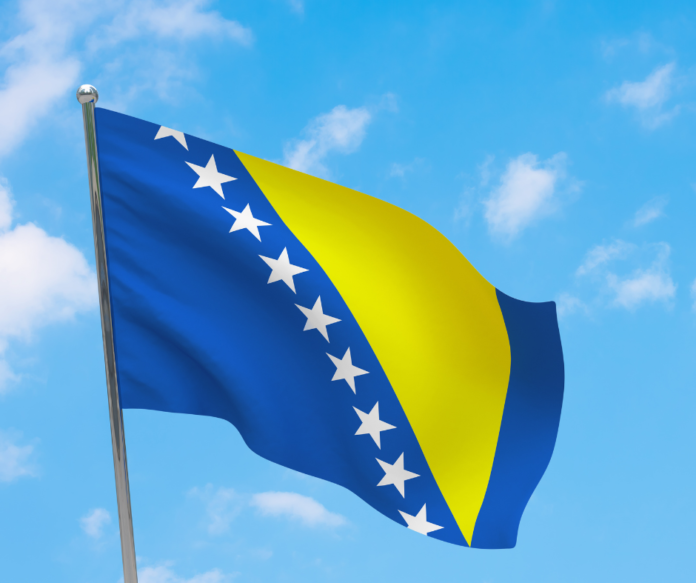The CIVICUS Monitor announced in a new report Wednesday that it has downgraded Bosnia & Herzegovina’s civic space to ‘obstructed’ in its annual ratings, as worsening attacks on activists, journalists and LGBTQI+ groups threaten the cohesion of the Western Balkan nation.
The report, People Power Under Attack 2023, details civic space conditions in 198 countries and territories. In Bosnia & Herzegovina, the downgrade from the relatively free category of ‘narrowed’ to ‘obstructed,’ where authorities often hinder people’s rights, is the result of a slew of violations from assaults on demonstrators to restrictive legislation.
The incidents mostly occurred in Republika Srpska, one of Bosnia & Herzegovina’s two constituent parts, but they put freedoms at risk across the whole country.
“The attacks on civil society in Bosnia & Herzegovina in 2023 are alarming. But they do not exist in a vacuum,” said Tara Petrović, CIVICUS Monitor’s Europe research lead. “The backslide takes place amid a deepening political crisis as authorities in Republika Srpska threaten secession and undermine the 1995 peace agreement.”
The CIVICUS Monitor rates each country’s civic space conditions based on data collected throughout the year from country-focused civil society activists, regionally-based research teams, international human rights indices and the Monitor’s own in-house experts. The data from these four separate sources are then combined to assign each country a rating as either ‘open,’ ‘narrowed,’ ‘obstructed,’ ‘repressed’ or ‘closed.’
This year, nearly a third of humanity, or 30.6% of the global population, lives in ‘closed’ societies, the most restrictive possible environments. This is the highest percentage of people in ‘closed’ countries the CIVICUS Monitor has recorded since its first report in 2018.
Meanwhile, just 2.1% of people live in ‘open’ countries, where civic space is both free and protected, the lowest percentage yet and almost half the rate of six years ago. Together, these statistics point to a world in crisis.
“We are witnessing an unprecedented global crackdown on civic space,” said CIVICUS Monitor lead researcher Marianna Belalba Barreto. “Bosnia & Herzegovina is part of this dire trend, led by politicians sowing further division.”
In 2023, Republika Srpska saw a spike in attacks on LGBTQI+ groups, including assaults on a women’s march and a social centre for displaying rainbow flags, a police ban on a film screening by an LGBTQI+ organisation and a brutal attack by armed thugs which sent three activists to hospital. Leading politicians then fanned the flames by advocating for a ban on LGBTQI+ events and announcing a new law to restrict LGBTQI+ groups.
“Right wing groups in Eastern Europe and elsewhere often attack LGBTQI+ people first before seeking to restrict rights for everyone,” said Petrović. “The events in Republika Srpska appear straight out of the Putin-Orban playbook.”
Media freedom is under threat too. Republika Srpska criminalised defamation in August, despite domestic and international criticism, endangering independent media already at risk of political smear campaigns in a country where attacks on journalists usually go unpunished.
2023 also saw a rise in dangerous speech, including from Republika Srpska leader Milorad Dodik, who denies the Srebrenica Genocide and stands accused of undermining the peace agreement which ended the Bosnian war.
Things may get worse. The National Assembly of Republika Srpska introduced a Foreign Agent Law resembling legislation in Hungary and Russia that allows the government to restrict funding and obstruct the work of independent civil society. If passed, it would have a chilling effect on activism.
“This combination of direct attacks on basic freedoms and a toxic political atmosphere should raise alarm bells that Bosnia & Herzegovina is headed in the wrong direction,” said Dajana Cvjetković of the Sarajevo-based Centre for Civil Society Promotion. “The international community must stand with civil society in Bosnia & Herzegovina by prioritising fundamental freedoms in all engagements with the authorities.”
The other downgraded countries this year are Bangladesh (closed), Germany (narrowed), Kyrgyzstan (repressed), Senegal (repressed), Sri Lanka (repressed) and Venezuela (closed).
For more information or to arrange an interview, please contact: [email protected]






